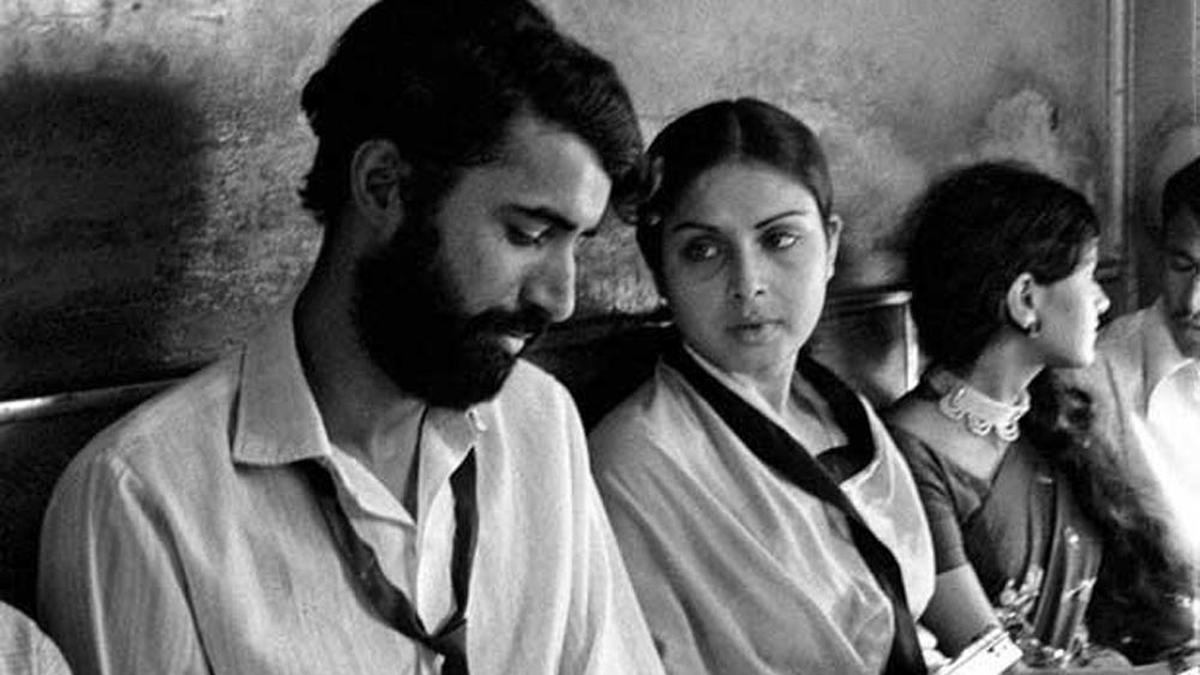
Awtar Krishna Kaul: Tracing an unfettered spirit
The Hindu
Awtar Krishna Kaul's groundbreaking film 27 Down paved the way for Parallel Cinema, leaving a lasting legacy in Indian cinema.
In 1973, when the Angry Young Man was raising his iron fist and a teenage Bobby was selling wet dreams at the box office, Awtar Krishna Kaul was busy documenting the internal and external journey of his nonheroic protagonist Sanjay in 27 Down (1974).
Partly shot on the Bombay-Varanasi train, the introspective study of a train conductor whose vibrant dreams are emasculated by an obstinate father, pushing the young man with an artistic bent of mind into leading a life of regret on regimented rails paved the way for the Parallel Cinema movement in the Bombay film industry.
Made on a shoestring budget provided by Film Finance Corporation (later NFDC), Awtar and Apurba Kishore Bir captured the rhythm in the chaos of Bombay’s working class through a hand-held Arriflex 2c camera. Long before All We Imagine As Light, the black and white frames shot with block lens created enduring images of a conflicted state of love, loneliness, and longing in a sea of crowded platforms at Bombay VT railway station.
One swallow doesn’t make a summer, but in Awtar’s case, his singular work of art continues to find love and add new layers even five decades after his promising career was tragically cut short by a freak drowning accident.
Rakhee’s unvarnished beauty and tenacious turn as a working woman continue to beguile the discerning, Om Shiv Puri’s performance as a lonely and manipulative father fills you with disgust, and M.K. Raina’s portrayal of a mild-mannered man grappling with a muddled destiny and an indecisive mind tightens the throat.
Now, 50 years after Awtar’s death, his nephew Vinod Kaul is piecing together the tumultuous life of the unfettered soul by wading into the fading memories of family members, friends, and critics. A former senior executive producer at Rajya Sabha TV, Kaul’s efforts led to a screening of the restored version of the film at the International Film Festival of India-2024 in Goa.
Like Sanjay, Kaul says, Awtar had a tenuous relationship with his father. “When he was looking for inspiration, he asked the librarian of a Delhi library to give him 50 books that have the least readership and picked Ramesh Bakshi’s Hindi novel, Athara Sooraj Ke Paudhe, for adaptation.”





















 Run 3 Space | Play Space Running Game
Run 3 Space | Play Space Running Game Traffic Jam 3D | Online Racing Game
Traffic Jam 3D | Online Racing Game Duck Hunt | Play Old Classic Game
Duck Hunt | Play Old Classic Game











